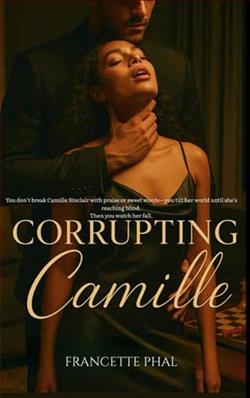Page 45 of The Venice Murders
‘We can walk,’ Jack assured him. ‘Does Signor Massi have a large business?’
The waiter cocked his head. ‘He grows vegetables. Many fields – for the market. Fruit, too. And eggs. Chickens,’ he explained, in case they hadn’t made the connection.
By midday, they were standing at the end of a long, winding drive and despite the refreshing breeze, feeling exceptionally hot. The sound of a horn slicing through the silence made them jump. A tractor was pulling into the side of the lane behind them.
In his best Italian – which was poor, Jack had to admit – he managed to indicate they were bound for the house they could glimpse at the end of the drive, whereupon the driver gestured to them to squash into the buddy seat beside him. The ten minutes that followed were uncomfortable but vastly preferable to a trudge in the scorching sun.
It was Signora Massi who opened the door, a kindly-looking woman with hair scraped into a collapsing bun and wearing a much-washed apron. Behind her, a slight figure hovered in the hallway beyond.
When Jack again tried his Italian, hoping to tell her how they’d met Franco at the Cipriani and to express their sadness over her son’s death, the shadow behind the signora suddenly became a person. A young boy, awkwardly dragging one leg, but with eyes the colour of chestnuts, spoke directly to them.
‘Can I help?’ he asked in English, with a smile that lit his face.
‘I’m sorry,’ Jack apologised. ‘Sorry that my Italian is so poor.’
‘You try,’ the boy said. ‘And that is good. My name is Daniele. I learn English from my brother. We speak English now and I translate for Mama.’
‘My name is Jack Carrington and this is my wife, Flora,’ he said gratefully. ‘We’re on holiday in Venice and met your brother’ – it seemed a reasonable guess – ‘at the Cipriani.’
‘You stay at the hotel?’
‘We’re on our honeymoon. It’s a very special holiday.’
How special it would turn out to be Jack didn’t like to think.
Daniele gave them another blinding smile. ‘Franco loved the hotel. He loved very much his work there.’
‘That was obvious when he checked us in on our first evening.’
‘Venire!’ the signora suddenly commanded, breaking into a conversation it was doubtful she could follow, and hustling them into the flagged hallway and along a narrow passage to the rear of the house. Through an open door, Flora glimpsed a small room as they passed, set up as a workshop. A businesslike sewing machine sat atop a large table, and the shelves that filled one entire wall were packed with bales of material: cottons, crepes, and a small number of silks. Signora Massi was a seamstress.
The woman led them into a large airy room that ran across the entire rear of the house, a ceiling fan lazily stirring the warm air but offering some small relief from a heat that was becoming more intense.
‘Sedersi!’ she commanded again, and they did, finding the basketweave chairs cool and comfortable.
Their hostess hurried from the room, but in a few minutes had returned with glasses of cold juice, a mixture of cherry and lemon. Delicious, Flora thought, trying not to drink too greedily.
‘Your son’s?’ Jack enquired, pointing to several framed certificates on the mantelpiece.
‘Franco,’ their hostess confirmed with pride.
‘He was the clever one,’ Daniele said, without a trace of resentment. ‘Franco passed every examination, but there was nothing for him here.’ The smile had faded and the note of sadness was evident. ‘He wanted always to live in the city, in a beautiful apartment. In London, in Venezia. And he made big success. He was very good in his job. Very good with important people, people who had money.’
‘He’d have to be,’ Jack remarked drily. ‘The Cipriani isn’t exactly cheap. But you, you never wanted to follow him?’
The boy gestured to his leg. ‘This does not work so well. I am tired many times and it is better I stay here. I can help my father.’
Again, it was said without resentment.
Signora Massi had sat silent as they talked. ‘Tornava spesso,’ she offered.
‘Even though my brother loved cities, he came back to Asolo,’ Daniele translated, ‘often.’
‘Because your parents needed him?’
The boy looked uncertain. ‘Maybe he needed Asolo,’ he said diffidently.
Franco’s story had been that his parents were ageing and it was his duty to help them and his disabled brother. But one look at her hostess had convinced Flora – and she was sure Jack, too – that itwassimply a story. Signora Massi was sprightly and energetic, still working as a dressmaker if the sewing machine didn’t lie, while Franco’s father worked in his fields daily. As for Daniele, the brother who in future would need greater care, he moved slowly, it was true, perhaps painfully, but he was a cheerful lad and, it seemed, quite capable. Hadn’t he just said that he helped his father in the fields? Bianca had been right to reject Franco’s excuse – it was patently false.















